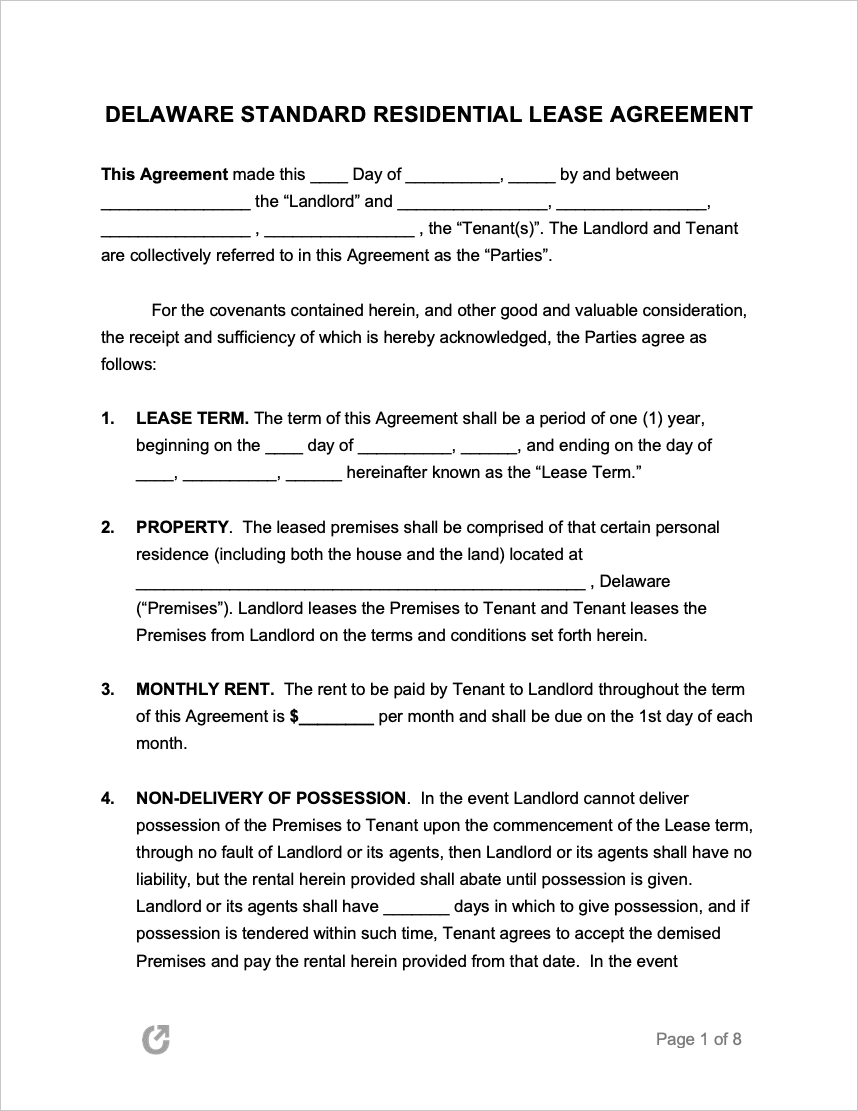Delaware Standard Residential Lease Agreement
The Delaware Standard Residential Lease Agreement is an official agreement used by property owners and landlords for the purpose of renting out a home or apartment to one (1) or more qualified tenants. The form mandates that the tenants follow the rules and conditions included in the contract, and as required by law. It typically remains in effect for twelve (12) months but may be renewed at the landlord’s discretion. Although there are some exceptions, a basic condition of these agreements is that the tenant pays rent in equal monthly installments. State law also requires landlords to make several required disclosures in the agreement. Under § 5105, the landlord must identify and provide contact information for the property owner in the lease agreement. The landlord must also provide his or her name and contact information.
Tenant Screening: Delaware Rental Application
State Laws
Laws: §§ 5105 to 5907 “Residential Tenant-Landlord Code”
Maximum Security Deposit: (§ 5514) A security deposit is capped at an amount equal to one (1) month rent when a lease is in effect for one (1) year or more, or when the tenancy is month-to-month. Furnished rental units are exempt from this restriction.
Returning Security Deposits: The landlord has twenty (20) days after the expiration of the lease or termination of tenancy in which to return a security deposit. If applicable, the landlord also has twenty (20) days in which to give the tenant a comprehensive list of damages and estimated repair costs. In such circumstances, the landlord will also return the remaining balance. The tenant has ten (10 days) to dispute the landlord’s claim for damages.
Pet Deposit: In addition to a security deposit, a landlord can request a pet deposit. The amount of any such deposit cannot be greater than one (1) months’ rent. The cost of repairs for any damages caused by a pet will be deducted from the pet deposit first. If there isn’t enough money to cover such costs, funds will also be deducted from the security deposit. However, a pet deposit is not required for a disabled tenant with a bona fide service animal.
